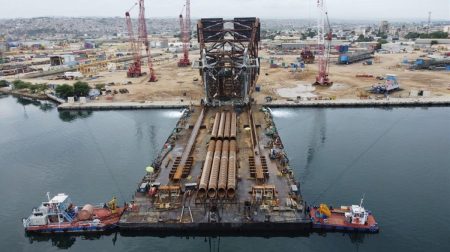
05 December 2016, Algiers — Sonatrach boosted natural gas sales to Italy by 140 percent in the first 10 months of the year as Algeria looks to bolster energy exports after years of stagnation, two senior officials from the state company said.
More effective exploitation of existing fields and expanded pipeline capacity is helping boost sales, Sonatrach Deputy General Manager for Marketing Omar Maaliou and Vice-president for Exploration and Production Salah Mekmouche told Reuters.
Algeria’s gas exports between January and October rose 25 percent from a year earlier, with exports for the year expected to rise to 54 billion cubic metres (bcm) from 44 bcm in 2015, they said.
Algeria exported more than 13.2 bcm to Spain in the first 10 months of the year and was its top supplier. It supplied around 9.7 bcm of gas to Italy, representing 16 percent of all Italian gas demand.
OPEC member Algeria is a leading exporter of gas to southern Europe, and is looking to bolster its standing in the international gas market.
Most of its current long-term gas export contracts with European customers are set to begin expiring in 2019 and 2020.
“We have focused on development rather than exploration, this is why we got an increase of production,” Mekmouche said.
“Today we have 30 sets of drilling equipment in the giant oil field of Hassi Messaoud, compared with only 10 in the past few years.”
Maaliou and Mekmouche said greater export pipeline capacity had also spurred higher output. Sonatrach has announced plans to invest $3.2 billion by 2020 to increase pipeline capacity.
The officials said Algeria exported 107 million tonnes of oil equivalent (TOE) from January to October, up 9 percent from 98 TOE a year earlier.
Despite the production increases, however, Algeria’s energy revenue in 2016 is expected to fall slightly.
Earnings fell to $35.7 billion in 2015 from $60.3 billion a year earlier reflecting lower oil prices, which put financial pressure on Algeria’s government coffers.
“The prices have crashed, but our exports have risen by about 10 million tonnes oil equivalent,” Maaliou said. “We are in a period of (production) growth, and stagnation belongs to the past.”



